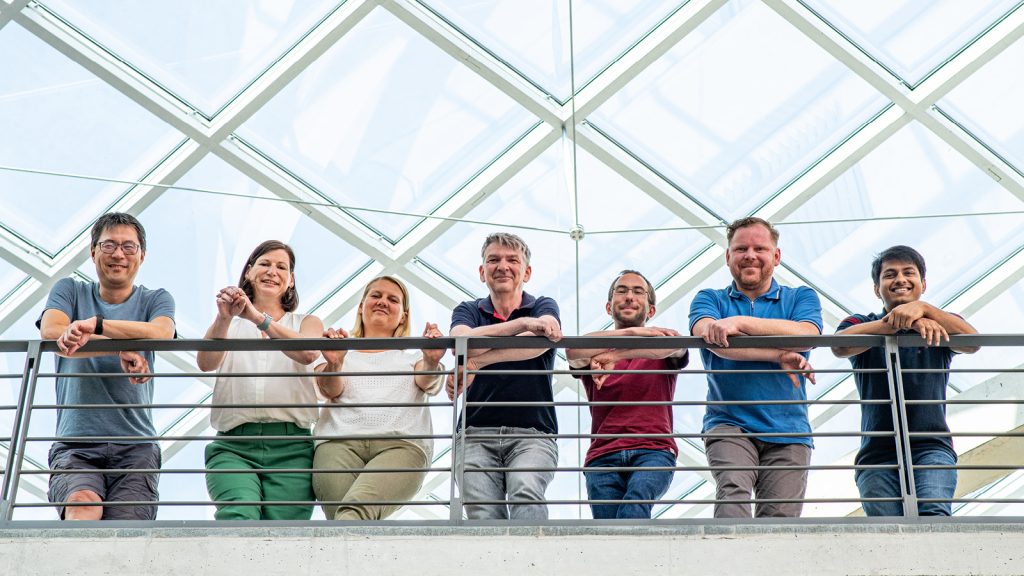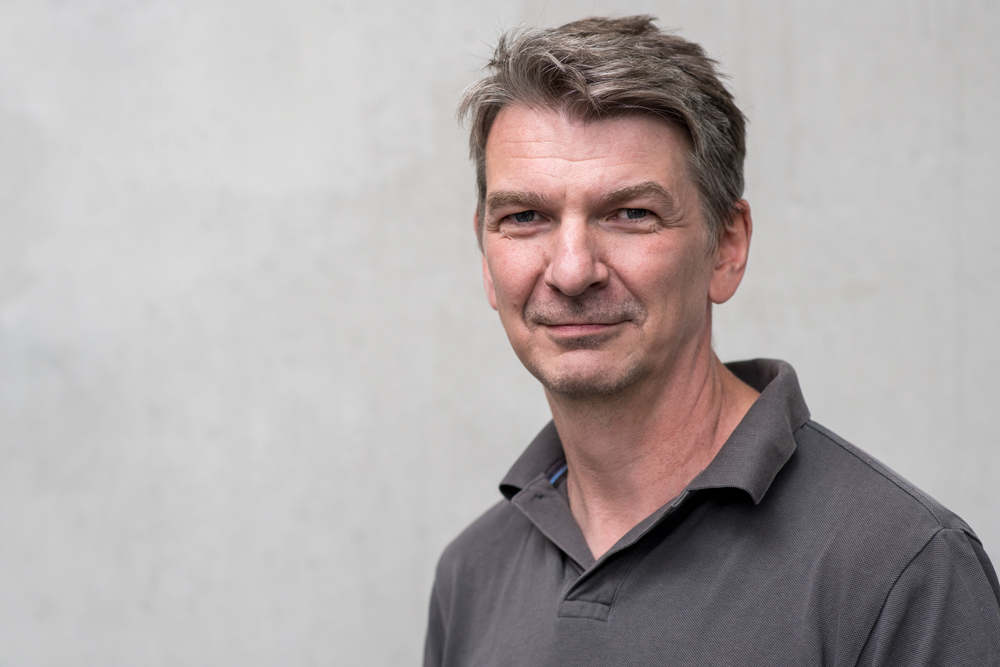- Technologieplattformen und Servicelabore
Zentrallabor Zytometrie und Zellsortierung

Modernste Zellanalyse und Zellsortierung durch technische Innovation
Das Zentrallabor für Zytometrie & Zellsortierung (FCCF) wurde im Jahre 2000 als eine gemeinsam genutzte Einrichtung (Shared Resource Lab) des DRFZ, der Charité – Universitätsmedizin Berlin und des Max-Planck-Institutes für Infektionsbiologie etabliert. Mit umfangreichen Serviceleistungen und eigenen technologischen Innovationen bietet das FCCF Zellanalysen und Zellsortierungen auf modernstem Niveau an.
Methoden und Anwendungsgebiete
Die Durchflusszytometrie ist eine Analysemethode zur quantitativen Erfassung von physikalischen, biochemisch-zellbiologischen und immunologisch-genetischen Parametern von einzelnen Zellen, mit deren Hilfe verschiedene Zellmerkmale bestimmt werden können. Die Durchflusszytometer des FCCF ermöglichen die gleichzeitige Messung von bis zu 28 Merkmalen einer Zelle anhand ihrer Fluoreszenzfärbung bei einem Durchsatz von bis zu 20.000 Zellen pro Sekunde.
In solch einem “Multicolor”-Ansatz, ist es möglich, Zellen von Patienten vor und während einer Therapie zu analysieren, um einen Therapieerfolg zu verfolgen, aber auch um die zellulären Prozesse einer rheumatischen Entzündung zu untersuchen.
In ähnlicher Weise können interessante Zelltypen nicht nur analysiert, sondern auch isoliert, und für weitere Analysen genutzt werden. Hierzu werden Zellen zunächst wie im Zellanalyser analysiert und dann in Tröpfchen verpackt, die eine spezifische elektrische Ladung erhalten und anschließend innerhalb eines elektrischen Feldes in Auffangröhrchen gelenkt werden. Mit speziell angepassten Sortierprotokollen können auch sehr empfindliche Zelltypen, wie z.B. Stroma- oder Plasmazellen oder in Kombination mit Voranreicherungsmethoden, wie der magnetischen Zellsortierung, auch sehr seltene Zelltypen, z.B. autoreaktive Lymphozyten analysiert oder sortiert werden.
Grundkurs Durchflusszytometrie
Einmal im Monat bieten wir einen zweistündigen Durchflusszytometriekurs über die richtige Anwendung der in der Durchflusszytometrie verwendeten Techniken an. Der Kurs ist für alle Interessierten offen. Die Termine werden jeweils bekannt gegeben bzw. können per Email angefragt werden.
Service und Zytometrie-Einführungskurs
Alle neuen Benutzer müssen zur Registrierung das Anmeldeformular ausfüllen und am Zytometrie-Einführungskurs teilnehmen. Der Kurs findet monatlich statt. Bitte kontaktieren Sie die Mitarbeiter für detaillierte Informationen.
